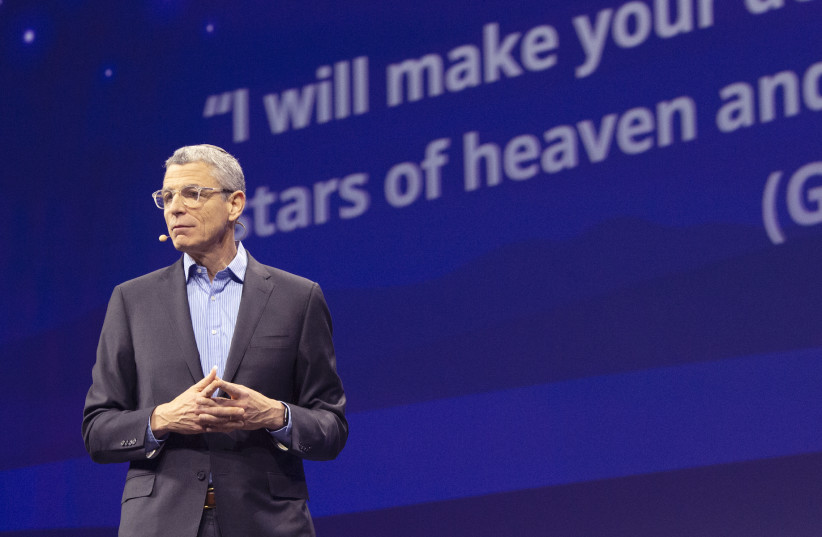"Appointing Itamar Ben-Gvir as public security minister is like appointing David Duke, head of the KKK, to be attorney general," president of the Union of Reform Judaism (URJ) Rabbi Rick Jacobs told Ynet in an interview on Sunday.
During the interview to Ynet, Jacobs also criticized the possibility that Religious Zionist Party leader Bezalel Smotrich will be appointed to the Finance or Defense ministries.
"Both are roles that necessitates plenty of interaction with people abroad. For most US Jews, having Smotrich or Ben-Gvir as Israel's representative is downright inconceivable," he said.
Jacobs added that “For the majority of American Jews, it is inconceivable that someone like Itamar Ben-Gvir or Bezalel Smotrich would not only be in the Knesset but would even be appointed as senior government ministers. When they talk about a variety of issues, they will be the face and voice of modern Israel. Honestly, that’s a scary thought for me. They are people who have made a career out of being against: against non-Orthodox Jews, against Israeli Arabs, against Palestinians, against LGBT people."
“For the majority of American Jews, it is inconceivable that someone like Itamar Ben-Gvir or Bezalel Smotrich would not only be in the Knesset but would even be appointed as senior government ministers. When they talk about a variety of issues, they will be the face and voice of modern Israel. Honestly, that’s a scary thought for me. They are people who have made a career out of being against: against non-Orthodox Jews, against Israeli Arabs, against Palestinians, against LGBT people."
Rabbi Rick Jacobs
"They represent an extreme view of Judaism and the State of Israel," Jacobs said and added "we are very concerned about this. Our connection to Israel is not through politicians or parties. Our connection is to the people and the ideals on which Israel was built.”

“Israelis have the right to vote for whoever they want, but they must understand the consequences and the price of their decisions.”
Rabbi Rick Jacobs
"Israelis must understand the consequences and the price of their decisions on who they vote for"
“Israelis have the right to vote for whoever they want, but they must understand the consequences and the price of their decisions,” Jacobs added. “That doesn't mean the world should cheer her on. There is a price and we may pay it. We have extremists here in the US as well. It's not that we are immune from extremists. But unlike Israel, none of the American extremists sit in the cabinet.”
Jacobs emphasized that the Reform movement and US Jewry aren’t disengaging themselves from Israel: "We are not leaving you Israelis, but it will be unusually difficult to convince people who question some of the Israeli policies, that this is not a radical turn to the Right.”
A Reform rabbi told The Jerusalem Post on Monday that he understands why Jacobs spoke the way he did about Ben-Gvir, but added that "he used American phrasing that didn't necessarily get across to the Israeli public as he intended."
“Israel had elections, and this is the outcome of it. We respect that, but for those of us who speak in defense of Israel’s legitimacy on college campuses, the idea of people like Ben-Gvir and Smotrich in prominent roles is a problem,” Jacobs told the The Jerusalem Post Magazine while visiting Israel for the Jewish Agency’s Board of Governors meetings in Tel Aviv two weeks ago.
In Jacobs’s eyes, nominating Ben-Gvir as public security minister and Smotrich as education minister is “like letting a pyromaniac run a fire station.”
Asked if he would meet the two as ministers, he replied that he “can’t imagine them asking for a meeting. They’ve been in public life for years and haven’t been knocking on my door. In addition, they’ve been demonizing us.”
Jacobs asked to pass along a message to the former and future prime minister: “Netanyahu, please do not forget American Jews, particularly liberal and progressive Jews. We love Israel and stand up for it daily. We have differences between us, but please don’t trade us in for the Evangelicals. “Please make sure we’re part of the discussion.”
